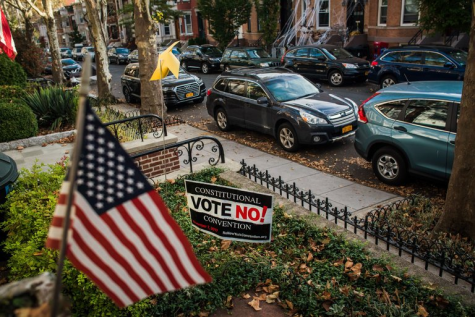Political Division Over Syrian Refugees in America

A current and pressing issue today revolves around the crumbling Middle East. Many terrorist groups such as IS (commonly known as ISIS) and Al-Qaeda are wreaking havoc in Syria and around the world.
Understandably so, many innocent civilians are attempting to leave Syria as refugees and attain a better life elsewhere in the world. The 1951 Refugee Convention defined what it means to be a “refugee” and declared the obligations of nations to aid and harbor refugees from other countries. According to this convention, a refugee is defined as “someone who ‘owing to a well-founded fear of being persecuted for reasons of race, religion, nationality, membership of a particular social group or political opinion, is outside the country of his nationality, and is unable to, or owing to such fear, is unwilling to avail himself of the protection of that country.” While fulfilling these obligations, it has recently become pressing to aid and harbor more than the required number of refugees.
President Obama has proposed the admittance of more refugees into America in order to protect the innocent families of Syria. Although sounding good on paper, this proposal has divided our governors more than expected, polarizing the issues between politicians. Jeb Bush and Ted Cruz have even proposed the favoring of Christian over Muslim refugees.
More than half of the US’s governors have already announced that they will not provide additional placement for the Syrian refugees. Some governors, however, in New York, Los Angeles, and Chicago, are encouraging greater admittance of refugees into their respective states.This level of dissonance between governors is dangerous to the unity of our nation and the cooperation between cities and states.
Some claim that the danger of refugee admittance into the U.S. after the recent attacks on Paris stems from the admittance of refugees throughout Europe. Although there is a possibility of terrorists sneaking in while posing as refugees, the risk is much lower in the United States, where extensive background checks occur for up to two years before the admittance of a refugee. In Europe, conversely, a refugee can be smuggled across the border for just $1,000.
Whether or not Americans like it, there is a pressing need to protect the innocent families unfortunate enough to be surrounded by terrorist factions. As of now, American policies are taking many precautions to balance protecting its citizens with aiding overseas refugees.






